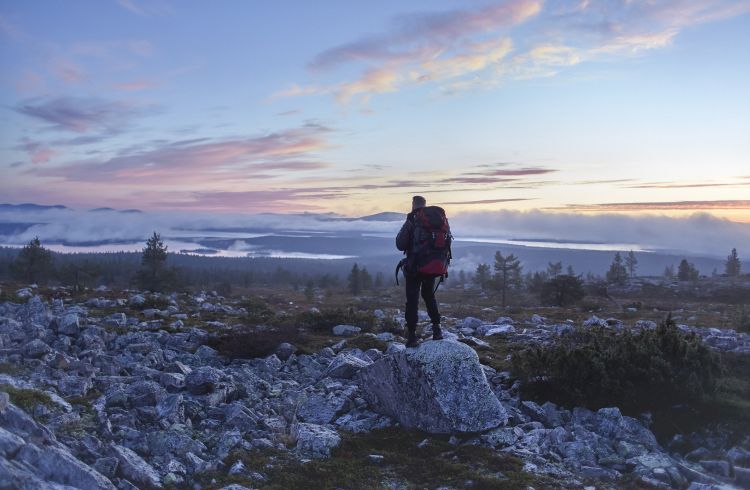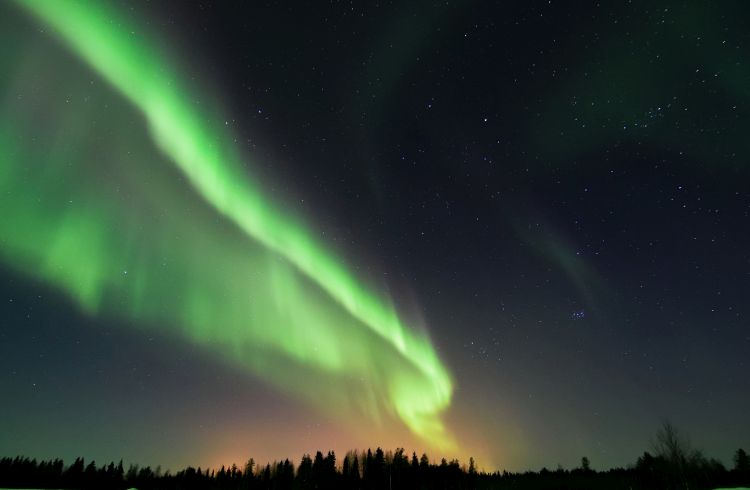How to Stay Healthy While Traveling Around Finland
Finland is a safe country, however there are a few environmental health concerns which travelers need to be aware of. Check out our tips to staying healthy in Finland.
 Photo © GettyImages/Aleksi Koskinen
Photo © GettyImages/Aleksi Koskinen
- Medical Treatment in Finland
- Vaccinations for Finland
- Water Safety in Finland
- Lyme Disease
- Cold Weather Health Issues
Medical treatment in Finland
Should you encounter medical problems, you're in luck because Finland's medical facilities are of a high standard. Some travelers, from countries such as Australia, have reciprocal health agreements with Finland, which means travelers can access a number of healthcare services. This does not, however, replace the need for travel insurance.
Vaccinations for Finland
There are no recommended vaccinations for Finland, however, all travelers should keep their routine vaccinations up to date. Travelers wanting to spend extended time in wilderness areas may want to consider getting the Tick-Borne Encephalitis vaccination (if available).
Water safety in Finland
The local tap water is safe to drink, however, if you are planning to hit the hiking trails, take caution when collecting water in natural streams and rivers.
A burbling stream may look crystal clear and very inviting, but there may be pulp factories, people or livestock upstream. Having said that many trekkers in the wilderness of eastern Lapland claim that springs there are safe to drink from without purifying. Ask the locals where to drink and, if in doubt, treat your water before drinking.
In neighboring Sweden and Norway, the general rule of thumb is that if the water is running it's safe to drink e.g waterfalls and natural springs. The higher into the mountains you are, the cleaner the water is. As Finland is predominately flat, natural water is at risk of pollution or stagnation. Those natural water drinking habits you may have picked up in other Scandinavian countries may not be appropriate in Finland. If you are unsure, stick to boiled or treated water.
Lyme Disease
Lyme Disease is present in Finland. Ticks infected with the Borrelia bacteria infect humans and animals when they latch on and have a feed. Symptoms develop over several days and include rash, fever, headaches, chills, muscle and joint pain. Seek medical treatment as the earlier that Lyme Disease is treated, the recovery time is less (generally two to four weeks).
Travelers who want to experience Finland's great outdoors should take precautions against tick bites by wearing strong insect repellent, light-colored, long-sleeved clothing and by tucking pants into socks. Gaiters can also help. Stick to marked tracks when out walking, and avoid brushing up against long grass and other vegetation. Most importantly, check yourself over after your outdoor adventure as ticks love to hide in warm spots such as armpits, behind ears, behind knees, and in and around the groin area.
Cold Weather Health Issues
Finland does winter well, with thick snow in many parts and temperatures dropping to as low as -55°F (-50°C) in northern Finland. If you are planning to travel to Finland during the winter months (and why wouldn't you, it's pretty spectacular!), it's important to come prepared for the chill factor and to avoid conditions such as frostbite.
- Make friends with thermals, as they help trap warmth in your body. Buy them in breathable moisture-wicking fabrics; it's no fun being damp and cold.
- Layer up. It's easier to cool down than it is to warm up if you need to take off a layer or two when indoors. Several thin layers in good fabrics, such as wool or silk, also take up less space in your luggage.
- Wear a beanie, scarf, and gloves. We lose body heat out of our extremities, plus keeping them covered up also helps maintain your body core temperature.
- Apply sunscreen and wear sunnies. Even though it's cold, you can still get sunburnt outdoors and the sun can be bright especially with the glare of snow and ice.
- Apply a moisturizer and lip balm. Winter dries out our skin. There's nothing worse than having raging chapped and cracked lips.
Also, check out our tips on avoiding the winter blues during the darkness of winter in Finland.
Related articles
Simple and flexible travel insurance
You can buy at home or while traveling, and claim online from anywhere in the world. With 150+ adventure activities covered and 24/7 emergency assistance.
Get a quote
4 Comments
That is some great advice, I will proceed to find the nearest tap for some great finnish tap water!
In lapland you should drink carefully when summer is coming,there can be dead animals on rivers,die on winter.
The above information is grossly outdated. In any county or city, the tap water is extremely pure. Previously, tap water sterilization was carried out using a small amount of chlorine, but today, ozonation is invariably used leaving no odor in water. Our capital Helsinki, for instance, gets its raw water along a 120 km long tunnel in the rockbed from Päijänne, one of cleanest lakes. Natural springs, small rock rivers in the north and the like provide really good-tasting water for trekkers.
However, during a hot summer like 2016 now, in lakes appear clumpy coatings of blue-green algae (cyanobacteria) , whose decomposition develops toxins that cannot be removed even by boiling. In the winter, the water of almost any river or lake can be used for making coffee.
All places in Finland have Tourist Information Offices (marked as "i"), where you can get up-to-date information on any subject, water and maps inclusive. Welcome to Finland,
one of cleanest countries in the world (also the least corrupt and best educated).
Having just returned from a 2 week holiday in finland I can report that in Lapland the tap water is fantastic, much better than the UK. I believe you should be careful drinking straight from nature wherever in the world you may be. Dead animals further up stream is reason enough to purify your hiking water.